Are you feeling overwhelmed by the cost of education and wondering if there's a way to ease your financial burden? You're not alone; many students face this challenge and seek solutions through fee waivers. In this article, we'll guide you through crafting an effective letter to request a fee waiver, highlighting key points to include and strategies to present your case convincingly. So, grab a cup of coffee and let's dive into the details that could help you secure that much-needed financial relief!

Subject line clarity
Subject lines for fee waiver requests should be clear and concise, conveying the purpose of the email immediately. Examples include "Request for Fee Waiver Due to Financial Hardship" or "Application for Tuition Fee Waiver for [Specific Program or Semester]." Including relevant details such as your name or the program (e.g., "John Doe - Fee Waiver Request for Fall 2023") can also provide context. This clarity ensures that the recipient understands the nature of the email at a glance, facilitating a timely review of the request.
Personal identification details
The process of requesting a fee waiver often involves submitting personal identification details to support the application. Applicants typically include essential information such as full name, which provides a clear identification, mailing address (street, city, state, zip code), which ensures accurate correspondence, phone number for immediate contact purposes, and email address for digital communication. Additionally, social security number may be needed to verify financial status, while date of birth establishes eligibility criteria based on age. In some cases, student identification number (for educational institutions) is required to link the request to the student's records. Supporting documentation, such as income verification forms, may accompany these details to substantiate the fee waiver request.
Financial hardship explanation
Financial hardship can significantly impact an individual's ability to meet essential expenses and obligations. Many families in regions like the Midwest have faced challenges due to unexpected medical bills, job loss, or reduced working hours, especially since the onset of the COVID-19 pandemic. In some cases, households report an income drop of over 30%, which places immense pressure on budgeting for necessities such as housing, utilities, and education fees. In urban areas like Detroit, Michigan, the cost of living combined with diminishing job opportunities exacerbates this financial strain, making it difficult for families to comply with fee requirements for educational or community programs. As a result, a formal fee waiver request becomes imperative for those experiencing such hardships, allowing them access to crucial resources without the added financial burden.
Specific waiver request
Individuals applying for a fee waiver often seek relief due to financial hardships impacting their ability to pay certain fees, like those associated with college applications or legal proceedings. Many universities, such as Harvard University in Cambridge, Massachusetts, offer fee waivers for students demonstrating financial need, often requiring documentation of household income and expenses. Legal assistance programs frequently provide similar opportunities for individuals facing significant economic barriers, with organizations like Legal Aid Society in New York City helping low-income residents navigate fee waiver applications. Submitting a detailed request, highlighting specific circumstances such as loss of income, medical expenses, or family obligations, can significantly strengthen a case for approval.
Courteous closing remarks
A fee waiver request can be supported by a courteous tone throughout the correspondence. In expressing gratitude, consider acknowledging the recipient's time and understanding. Mentioning the impact of their consideration on your circumstances, such as educational opportunities or financial burdens, adds depth. Ending with a hopeful note for a favorable response encourages positive engagement while maintaining respect for the process. Incorporate specifics like the application date or fee amount to personalize the message. Consider signing off with phrases that reflect appreciation, such as "Thank you for your attention to this matter" or "Sincerely grateful for your consideration.

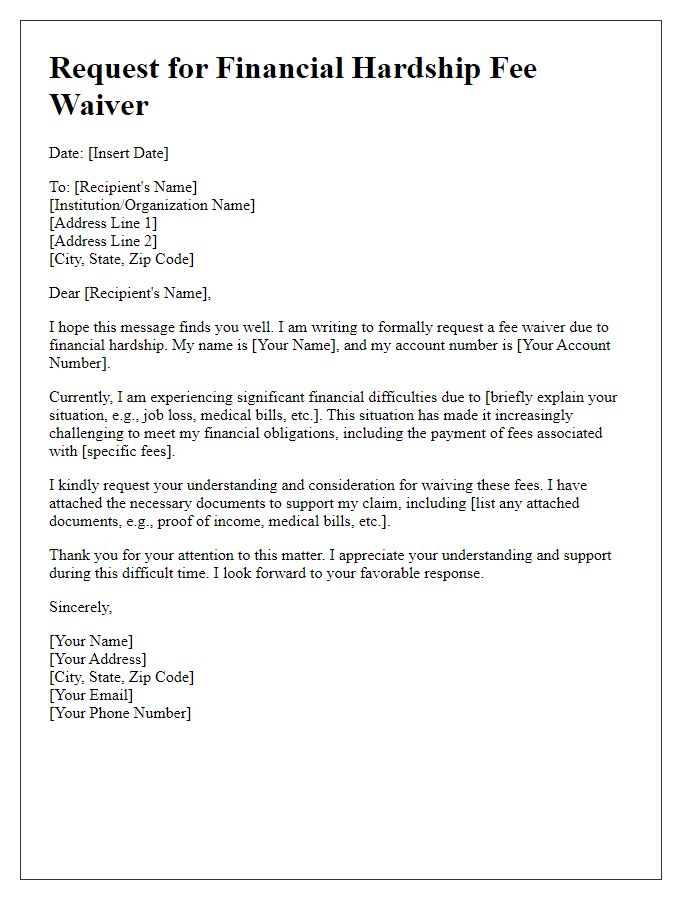
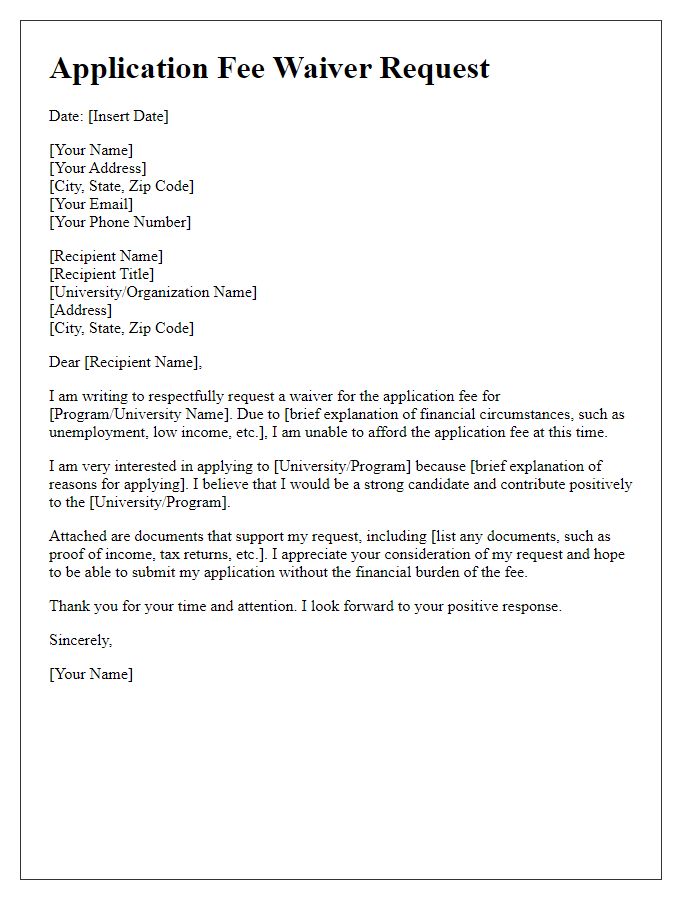
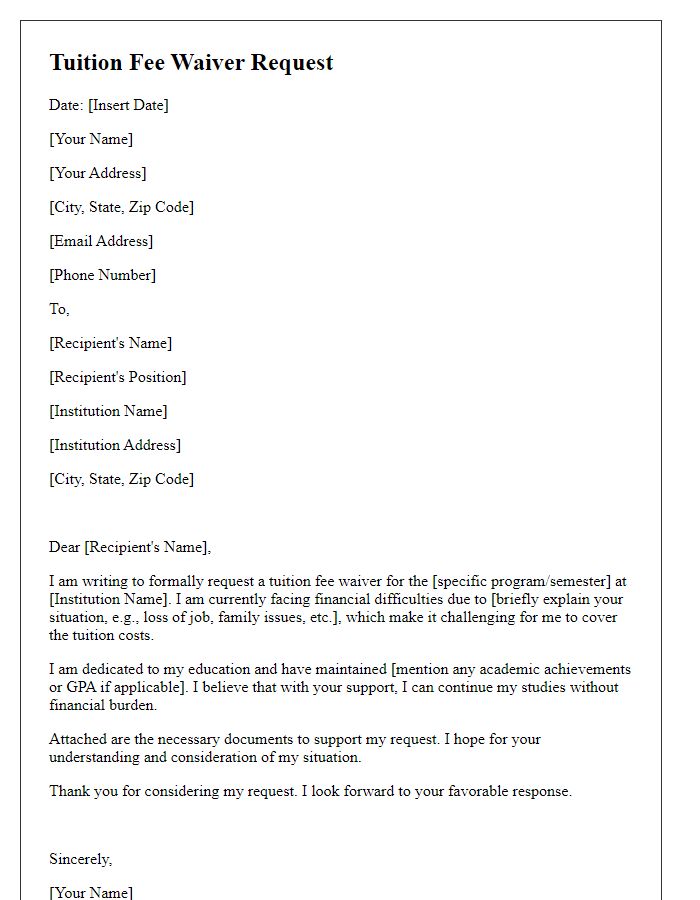
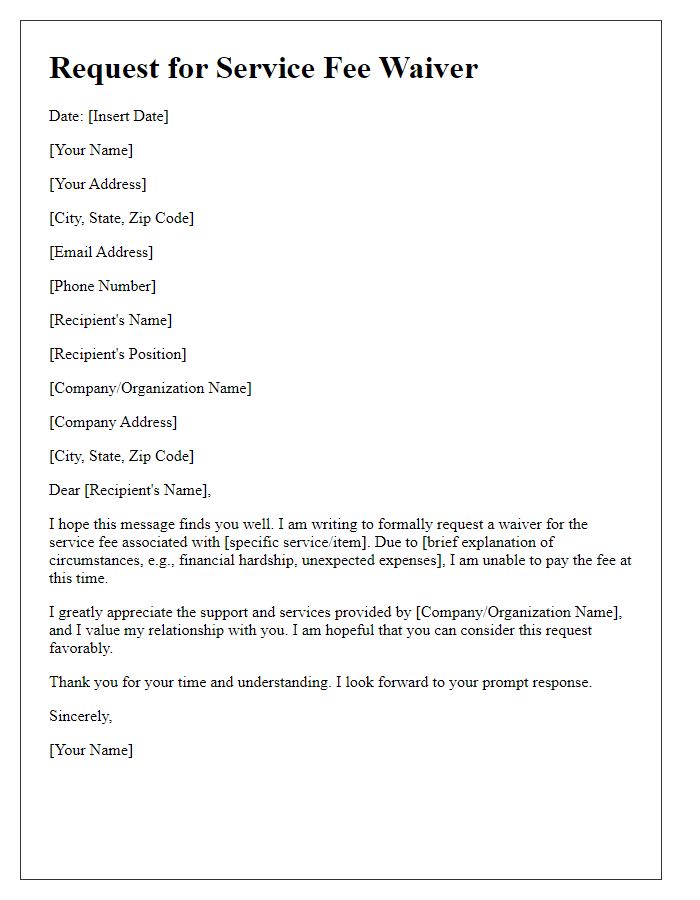
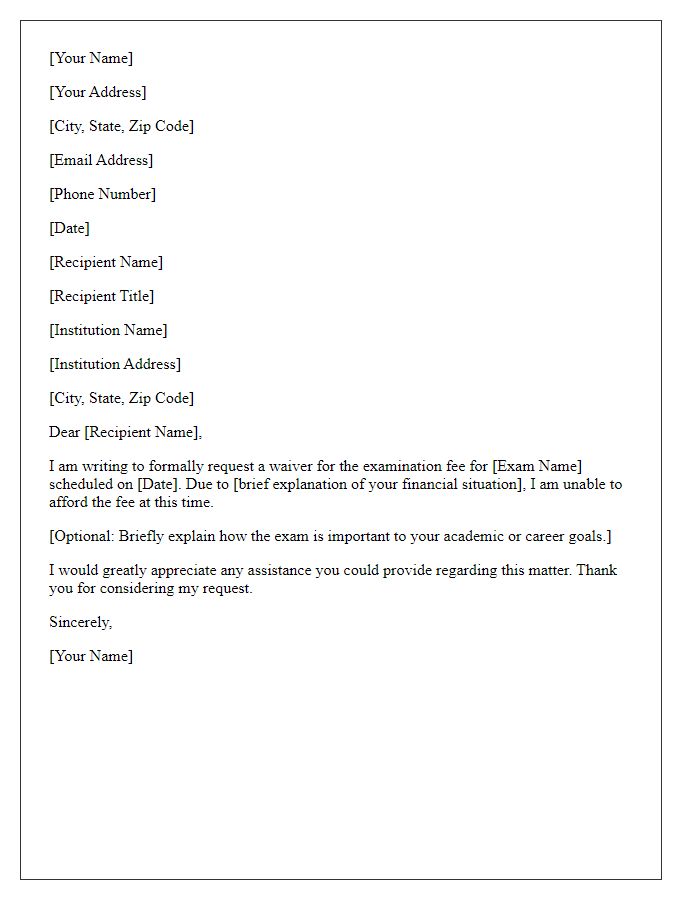
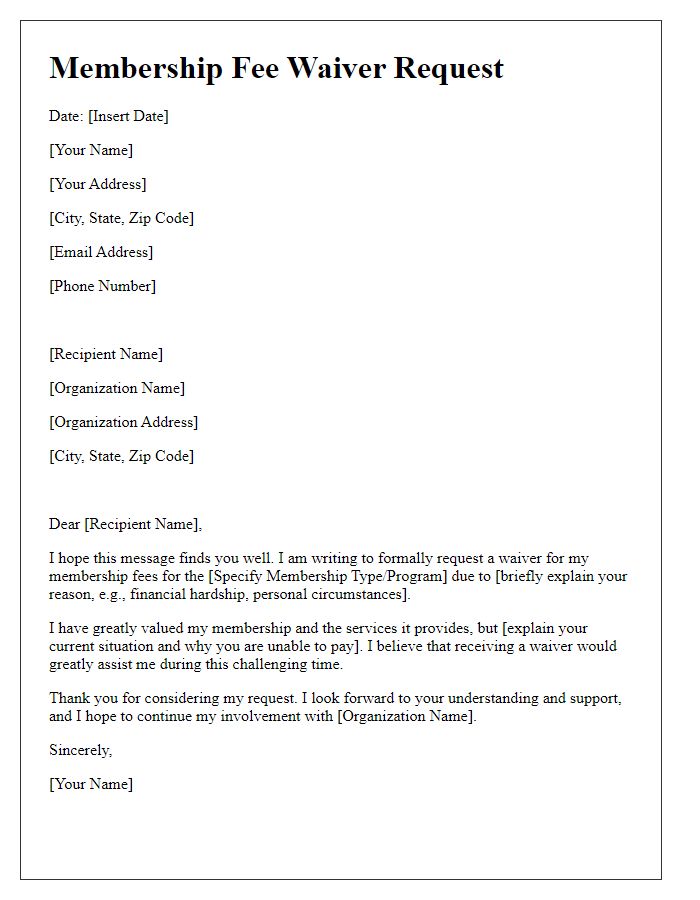
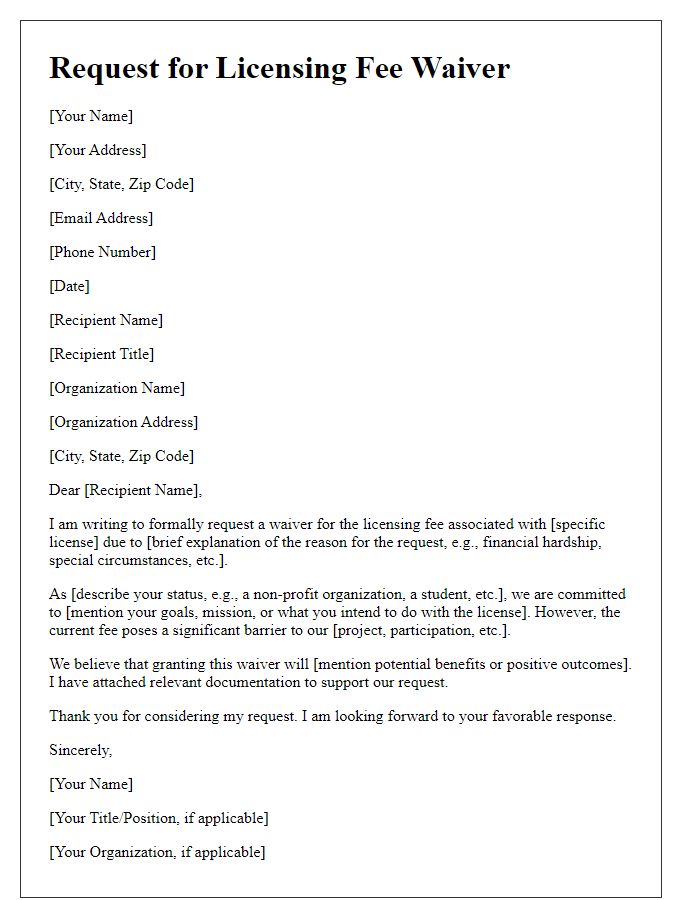
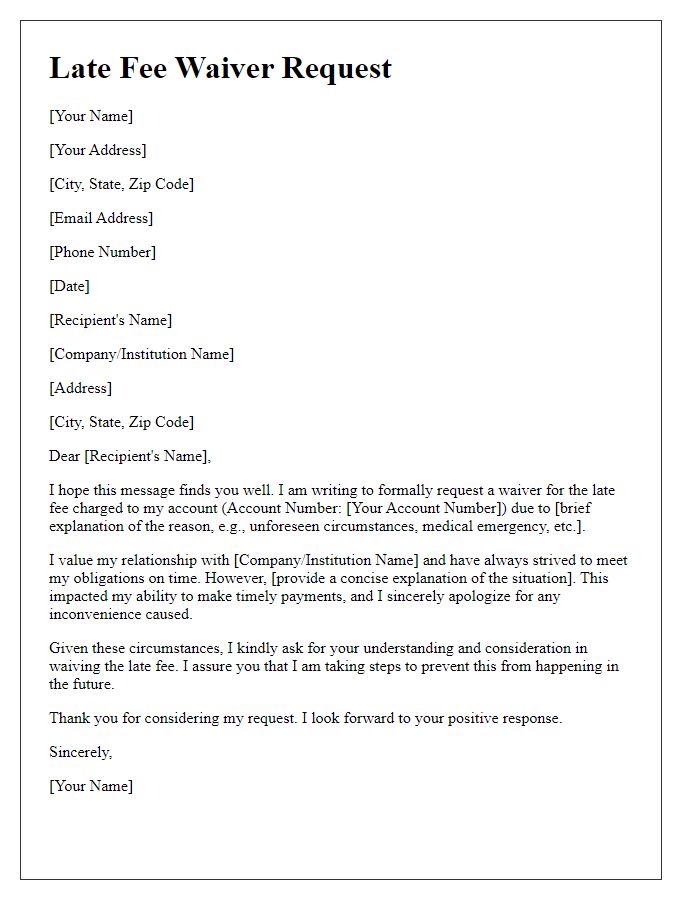
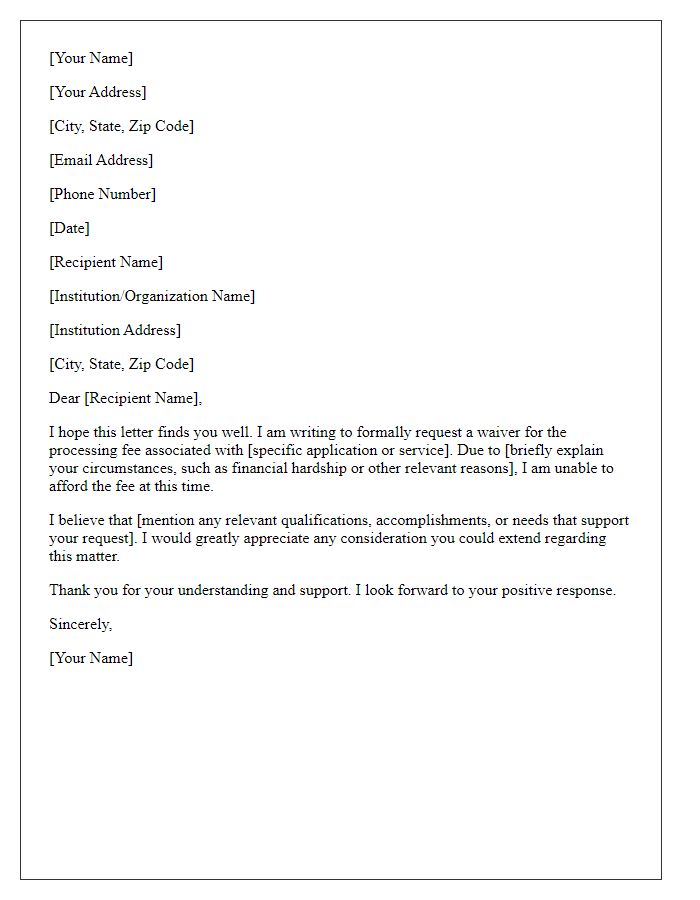
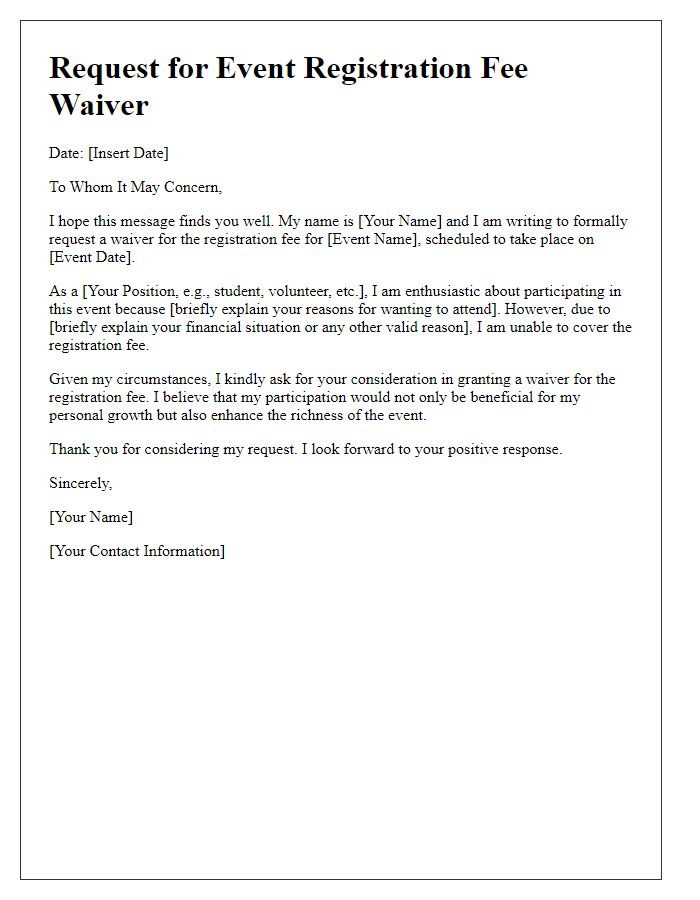

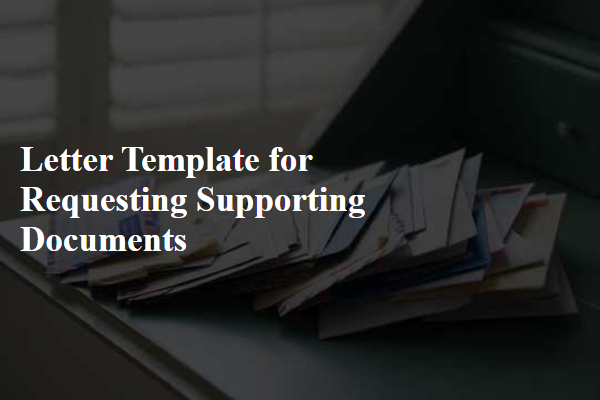
Comments